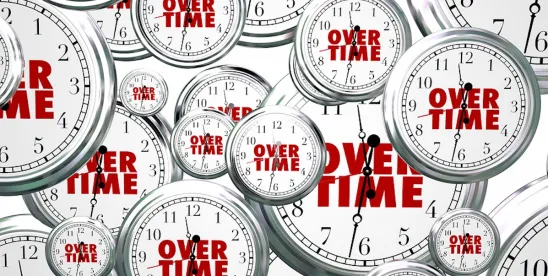On June 17, 2024, the Supreme Court of the United States decided to hear a wage and hour case concerning whether employers must meet a higher burden of proof to demonstrate that workers are exempt from the minimum wage and overtime requirements of the Fair Labor Standards Act (FLSA).
Quick Hits
- The Supreme Court will review a Fourth Circuit ruling that required an employer to prove by clear and convincing evidence that workers were covered by an FLSA overtime exemption.
- The employer opposed the heightened standard, arguing that at least six other circuits applied a lower “preponderance of the evidence” standard.
- The federal government filed a brief in the case urging the Supreme Court to summarily reverse the Fourth Circuit’s ruling.
The Supreme Court granted a petition for certiorari in E.M.D. Sales, Inc. v. Carrera, which raises the issue of whether employers must establish that workers are covered by one of the FLSA’s exemptions by a preponderance of the evidence—as six circuit courts of appeal have held—or by clear and convincing evidence, as the U.S. Court of Appeals for the Fourth Circuit has held.
EMD Sales, Inc., an international foods distributor, argued in its petition for a writ of certiorari that the Fourth Circuit had improperly held employers to a higher bar for demonstrating employees were covered by one of the thirty-four exemptions from the FLSA’s minimum wage and overtime requirements. EMD argued the Fourth Circuit was the only appellate court to require employers to demonstrate an FLSA exemption by clear and convincing evidence, calling the standard “an unusually heavy burden reserved for such weighty matters as civil commitment, termination of parental rights, and deportation.” Six other circuits—the Fifth, Sixth, Seventh, Ninth, Tenth, and Eleventh—apply the “familiar preponderance of evidence standard generally applied in civil cases,” EMD argued.
The federal government in May 2024 urged the Supreme Court to “summarily reverse” the Fourth Circuit’s ruling “[i]n light of the obviousness of the error,” according to a brief as amicus curiae filed by U.S. Department of Justice. The government argued that the Fourth Circuit’s decision to apply a clear and convincing standard of proof was “unreasoned and inconsistent” with Supreme Court precedent and that such a “heightened standard of proof should not be applied to ordinary civil cases seeking monetary remedies.”
Several business groups have also urged the court to reverse the Fourth Circuit’s ruling and bring the circuit in line with other circuits. The groups have argued that a clear and convincing standard is inappropriate, will make it difficult for employers to demonstrate that an exemption applies, and will result in additional unnecessary litigation.
Next Steps
The Supreme Court will hear the case during its next term, which begins in October 2024. A ruling is expected by the end of that term.





 />i
/>i

